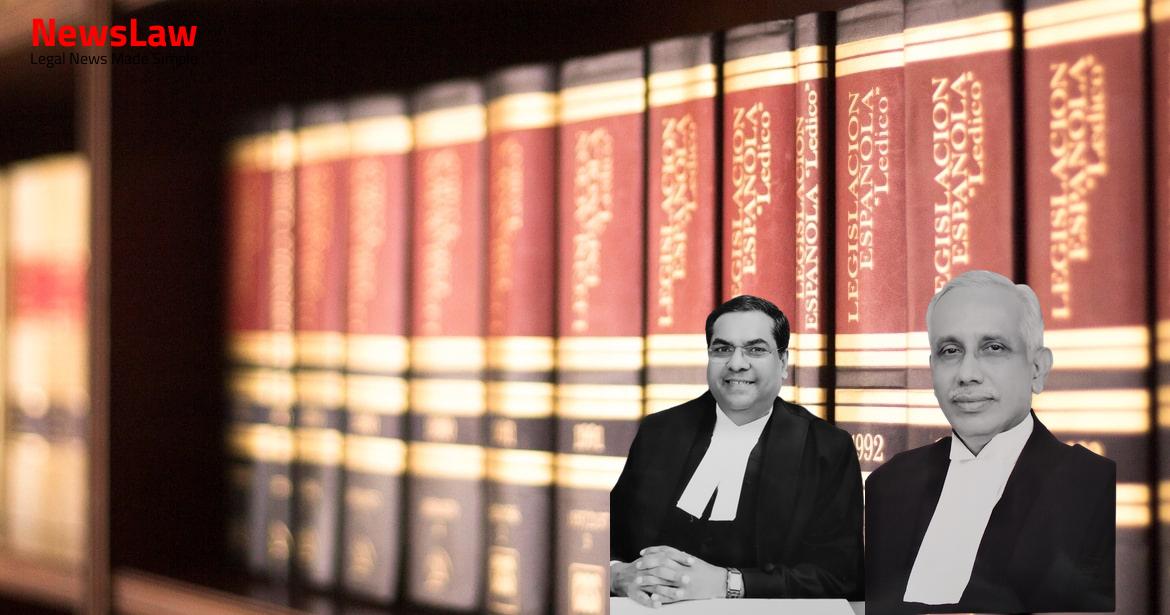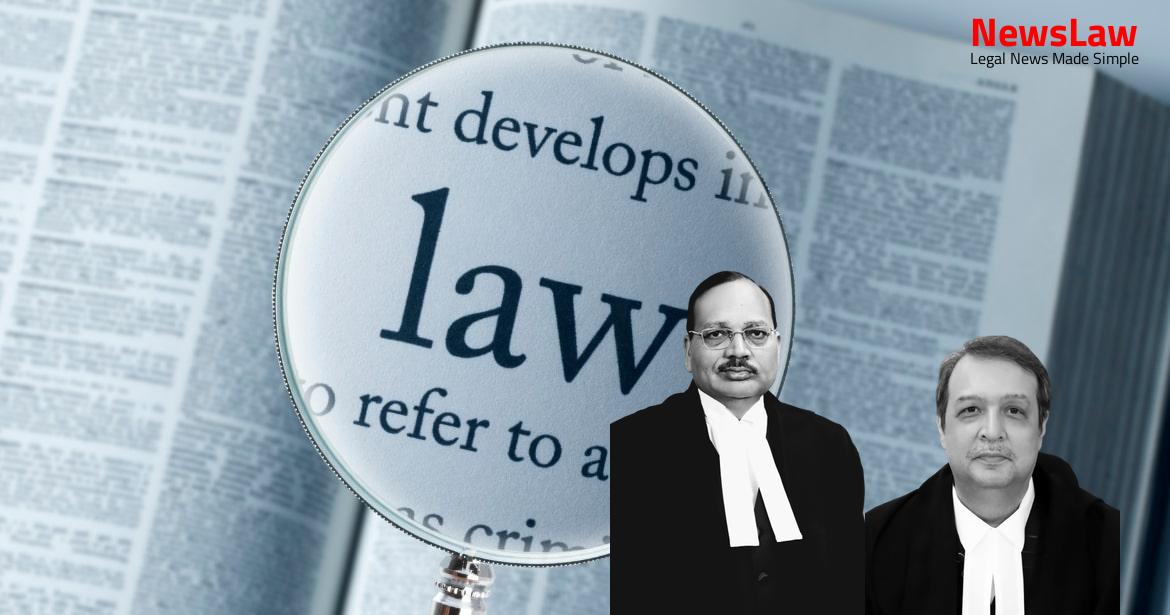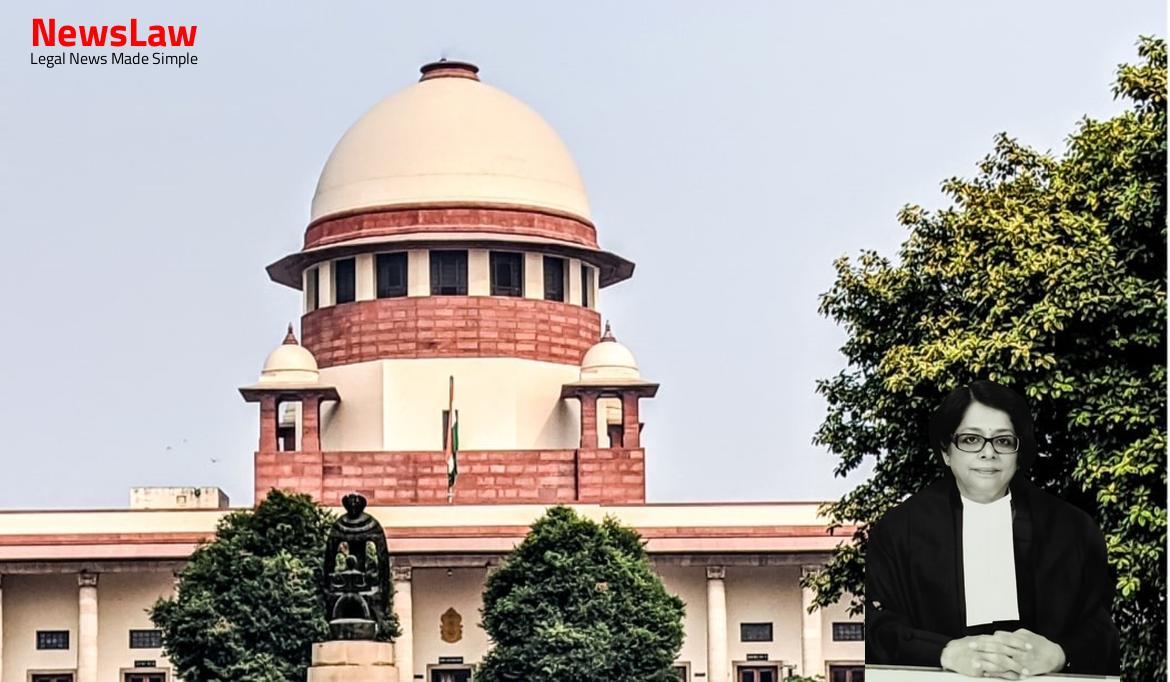In the case of Ravinder Kumar vs. State, involving the petitioner Ravinder Kumar and the respondent State, the High Court has overturned the conviction under Section 302 IPC. The lack of conclusive evidence and failure to establish guilt beyond reasonable doubt have led to the appellant’s release after 15 years of incarceration. Find out more about this significant legal development.
Facts
- The appeals partly allowed and the conviction and sentence against Pushpender (accused No.2) under Section 302 IPC were set aside.
- Conviction and sentence restored for offences under Sections 304B and 498A read with Section 34 IPC.
- In case of default in fine payment, directed to undergo rigorous imprisonment for three months.
- The High Court held the appellant and Pushpender guilty under Section 302 read with Section 34 IPC.
- Appellant sentenced to life imprisonment with a fine of Rs.25,000.
- Addl. Sessions Judge convicted the appellant under Section 302 IPC and initially sentenced to life imprisonment with a fine.
- Trial court’s sentence reduced to the period already served by the appellant.
- Appeal against the High Court’s judgment in Criminal Appeal No.287 of 2015 was dismissed.
- Pushpinder (accused No.2) sentenced to life imprisonment with a fine of Rs.25,000 under Section 302/34 IPC.
- Conviction and sentence set aside for Section 304B read with Section 34 IPC.
- Phoolwati, Babu Lal, and R. Harshinder convicted under Section 304-B read with Section 34 IPC and Section 498-A read with Section 34 IPC.
- Sentences for accused maintained with rigorous imprisonment and fines specified.
- In case of default in fine payment, further rigorous imprisonment consequences outlined.
- Criminal appeals filed by convicted persons due to the above decisions.
- Deceased Meena got married to the appellant Ravinder Kumar on 20.06.1999.
- A male child named Harry was born to them on 26.08.2000.
- Deceased Meena filed an FIR on 27.04.2001 alleging offences under various sections of IPC.
- The FIR was later converted into a case involving offences under Section 304-B/498-A/34 of IPC.
- The father, brother, and mother of the deceased provided statements leading to the conversion of the case.
- The appeal was filed in October 2023 by Ravinder Kumar after other related appeals were decided.
- Charges were framed against Ravinder Kumar, Babu Lal, Phoolwati, Pushpender, and R. Harshinder after the investigation.
Also Read: Divgi Metal Wares Ltd vs. Divgi Metal Wares Employees Association
Arguments
- No incriminating circumstances proved against the appellant beyond reasonable doubt
- Conviction based on circumstantial evidence
- Recovery of bloodstained clothes found at a place accessible to one and all
- Recovery panchnama does not mention the date of recovery
- Conviction under Section 302 IPC not tenable
- Conviction under Section 304B and 498A also not tenable
- The appellant argues that the matter was compromised between the deceased and the accused.
- It is contended that no interference should be made with the conviction under Section 302 IPC.
- The convictions under Section 498A and 304B IPC have been affirmed in the case of three co-accused persons, establishing finality.
- The amended charge was framed on 14.03.2007, limiting the cruelty claim to the period between 21.10.2003 and 29.05.2004.
- During this period, there are no allegations against the appellant under Section 498A IPC.
- Ms. Kapoor argues that the prosecution failed to prove guilt, and the conviction under Section 304B IPC is not sustainable.
- Shri Rajan Kumar Chourasia, representing the respondent, asserts that both Courts have correctly found the appellant guilty under Section 302 IPC based on evidence.
Also Read: Case of Acquittal of Appellants in Murder Trial
Analysis
- A recovery to be admissible under Section 27 of the Evidence Act must be from a place exclusively known to the maker.
- The prosecution must prove its case before the burden shifts to the accused under Section 106 of the Evidence Act.
- An accused cannot be convicted based on suspicion alone; proof beyond reasonable doubt is necessary.
- The High Court failed to distinguish between ‘may have committed the crime’ and ‘must have committed the crime’ as per precedent.
- Strong suspicion cannot replace proof beyond reasonable doubt.
- The prosecution’s case relies heavily on circumstantial evidence.
- The appellant’s deliberate actions regarding the calendar raised suspicion.
- The recovery of bloodstained clothes alone was not sufficient to prove guilt beyond reasonable doubt.
- In cases like these, the husband must explain events in the shared residence, but the prosecution first needs to establish the presence of both parties at the time of the crime.
- In cases of circumstantial evidence, the circumstances from which guilt is to be inferred must be fully established.
- The facts should only be consistent with the guilt of the accused, excluding any other hypothesis.
- The circumstances should be conclusive and exclude every possible alternative hypothesis.
- There must be a complete chain of evidence leaving no reasonable doubt as to the innocence of the accused.
- The suspicion, even if strong, cannot replace proof beyond reasonable doubt.
- Prosecution failed to prove any incriminating circumstances beyond reasonable doubt.
- Prosecution failed to establish a chain of events leading to the guilt of the accused.
- Appellant has undergone incarceration for over 15 years.
Also Read: Cheating Allegations: Quashing of FIR and Charge-sheet
Decision
- The appellant is directed to be set at liberty forthwith, if not required in any other case.
- The appellant does not need to deposit the fine amount.
- The appeal is partly allowed.
- Conviction and sentence under Section 302 IPC are set aside.
- Pending application(s) shall stand disposed of.
- Conviction and sentence under Sections 304B, 498A read with Section 34 IPC are restored.
Case Title: RAVINDER KUMAR Vs. STATE (NCT OF DELHI) (2024 INSC 211)
Case Number: Crl.A. No.-000918-000918 / 2024



